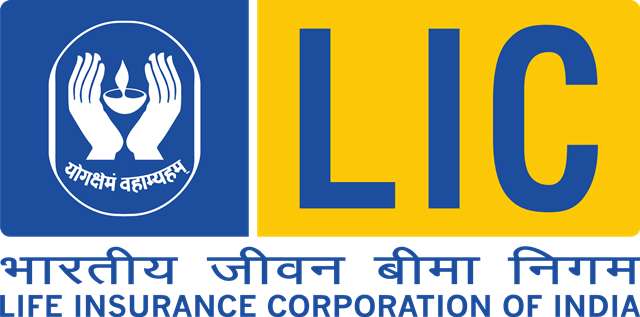Top Health Insurance Plans in India for 2026: A Comprehensive Comparison of Coverage and Premiums
Choosing the right health insurance plan can be a daunting task, but it's essential to prioritize finding a plan that provides the most value for your money and meets your unique requirements. Value for money in health insurance means that the premiums you pay are justified by the benefits the policy offers, such as inpatient coverage, outpatient...
Edelweiss Financial Services has launched a public issue of non-convertible debentures (NCDs) worth Rs 250 crore.
Edelweiss Financial Services has announced the public issue of 25,00,000 Secured Redeemable Non-Convertible Debentures (NCDs) with a face value of Rs 1,000 each, aiming to raise up to Rs 125 crore (Base Issue Size) with a green shoe option of up to Rs 125 crore. This brings the total issue limit to Rs 250 crore. The issue features 10 series of...
As healthcare costs continue to rise, the need for effective regulation of the insurance industry has become increasingly important. With medical expenses skyrocketing, the burden on individuals, families, and businesses is growing, making it essential to oversee insurance providers to ensure they are operating fairly and in the best interest of their policyholders. Regulations can help prevent exploitative practices, promote transparency, and guarantee that insurance companies are providing adequate coverage to those who need it. By regulating the insurance industry, governments can help mitigate the financial strain of rising healthcare costs and safeguard the well-being of their citizens.
A recent report found that approximately one in five health care claims in Massachusetts were rejected in 2024, highlighting the challenges that many people face in accessing health care services due to insurance issues. In response, the state has introduced new regulations aimed at reducing administrative burdens and improving patient access to...
PNB MetLife Survey Reveals Three Unique Personas of Indian Fathers Based on Their Financial Saving Habits
A recent survey conducted by PNB MetLife, a leading life insurer in India, has revealed that 62% of Indian fathers identify themselves as "Hero Dads", who prioritize their family's financial security. The survey, which engaged over 6,000 fathers across the country, classified them into three distinct personas: "Hero Dads", "Thoughtful Dads", and...
The rising cost of health care is a complex issue with multiple contributing factors. Some of the key reasons include:
Advancements in Medical Technology: New treatments, medications, and equipment are continually being developed, which can drive up costs. These advancements often come with a high price tag, contributing to increased healthcare expenditures.
Aging Population: As the population ages, there is a greater demand for health care services. Older adults typically require more medical care due to age-related health issues, leading to higher costs.
Chronic Diseases: The prevalence of chronic diseases such as diabetes, heart disease, and obesity has increased. Managing these conditions often requires ongoing, costly treatments and medications.
Administrative Costs: The healthcare system involves a significant amount of administrative work, including billing, insurance claims, and regulatory compliance. These tasks are costly and contribute to the overall expense of healthcare.
Pharmaceutical Prices: The cost of prescription medications has risen significantly. New and innovative drugs, especially those for rare or complex conditions, can be very expensive.
Defensive Medicine: To avoid potential lawsuits, healthcare providers may order additional tests or procedures, which can drive up costs without necessarily improving patient outcomes.
Insurance and Payment Systems: The way healthcare is financed, including insurance premiums, deductibles, and copays, can make it inaccessible or unaffordable for many people, affecting the overall cost landscape.
Hospital and Healthcare Facility Costs: The cost of maintaining and operating hospitals and other healthcare facilities, including staff salaries, equipment, and supplies, contributes to the overall expense of healthcare.
Regulatory Compliance: Healthcare providers must comply with a myriad of regulations, which can be costly in terms of time, personnel, and resources.
Lack of Transparency and Competition: In some areas, limited competition among healthcare providers and a lack of price transparency can lead to higher costs, as consumers may not be able to make informed decisions based on price and quality.
Advancements in Medical Technology: New treatments, medications, and equipment are continually being developed, which can drive up costs. These advancements often come with a high price tag, contributing to increased healthcare expenditures.
Aging Population: As the population ages, there is a greater demand for health care services. Older adults typically require more medical care due to age-related health issues, leading to higher costs.
Chronic Diseases: The prevalence of chronic diseases such as diabetes, heart disease, and obesity has increased. Managing these conditions often requires ongoing, costly treatments and medications.
Administrative Costs: The healthcare system involves a significant amount of administrative work, including billing, insurance claims, and regulatory compliance. These tasks are costly and contribute to the overall expense of healthcare.
Pharmaceutical Prices: The cost of prescription medications has risen significantly. New and innovative drugs, especially those for rare or complex conditions, can be very expensive.
Defensive Medicine: To avoid potential lawsuits, healthcare providers may order additional tests or procedures, which can drive up costs without necessarily improving patient outcomes.
Insurance and Payment Systems: The way healthcare is financed, including insurance premiums, deductibles, and copays, can make it inaccessible or unaffordable for many people, affecting the overall cost landscape.
Hospital and Healthcare Facility Costs: The cost of maintaining and operating hospitals and other healthcare facilities, including staff salaries, equipment, and supplies, contributes to the overall expense of healthcare.
Regulatory Compliance: Healthcare providers must comply with a myriad of regulations, which can be costly in terms of time, personnel, and resources.
Lack of Transparency and Competition: In some areas, limited competition among healthcare providers and a lack of price transparency can lead to higher costs, as consumers may not be able to make informed decisions based on price and quality.
The rising cost of health insurance in the United States is a pressing concern, with premiums for employer-sponsored insurance expected to increase by 9% in 2026. Public spending on Medicare, Medicaid, and Obamacare is also surging. However, this increase is not due to excessive profits among insurers or hospitals, but rather the rising cost of...
India approves wage and pension hikes for insurance employees, NABARD, and RBI retirees.
The Indian government has announced wage and pension revisions for various public sector entities, including Public Sector General Insurance Companies (PSGICs), the National Bank for Agriculture and Rural Development (NABARD), and the Reserve Bank of India (RBI). The revisions aim to provide relief to employees and pensioners by helping them...
PNB MetLife has introduced the Pension Premier Multicap Fund as part of its retirement savings plan. The fund’s net asset value (NAV) and subscription window details are now available for investors to review.
PNB MetLife India has launched a new pension fund, the PNB MetLife Pension Premier Multicap Fund, as part of its Unit-Linked Insurance Plans (ULIPs) offerings. The fund is available for subscription from April 1 to April 15, 2025, and is designed to help customers build secure retirement savings. The fund is an actively managed multi-cap fund...

Government considers ₹5,000 crore capital infusion for three public sector insurance companies as losses resurface.
Vijayan emphasized that strengthening the operational aspects of insurance companies requires more than just increasing capital. Over the past decade, the number of employees in these companies has drastically decreased, from approximately 16,000 to around 7,000 per company. This significant reduction in workforce has likely impacted the...
Key Provisions:
- 100% Foreign Direct Investment (FDI) in insurance intermediaries
- Enhanced powers to the Insurance Regulatory and Development Authority of India (IRDAI)
- Implications for the Indian insurance sector
100% FDI:
- Allows full foreign ownership in insurance intermediaries such as brokers, third-party administrators, and surveyors
- Expected to attract more foreign investment into the sector
IRDAI Powers:
- IRDAI to have more regulatory control over the insurance sector
- Powers to regulate and supervise insurance companies, intermediaries, and other stakeholders
- Ability to impose penalties and take enforcement actions against non-compliant entities
What It Means for India:
- Increased foreign investment in the insurance sector
- Enhanced regulatory framework for the insurance industry
- Potential for increased insurance penetration and density in India
- Improved consumer protection and dispute resolution mechanisms
- Opportunities for growth and development of the Indian insurance market
The New Insurance Bill, 2025, also known as the Sabka Bima Sabki Raksha (Amendment of Insurance Laws) Bill, 2025, is a significant milestone in India's financial sector reforms. The Bill aims to modernize India's insurance ecosystem, expand coverage, and strengthen regulatory oversight. It was approved by the Union Cabinet and is set to be...
New Insurance Bill 2025: Key Features Include 100% FDI, Enhanced Protection for Policyholders, and More in Sabka Bima Sabki Raksha Bill
The Indian government has introduced the Sabka Bima Sabki Raksha (Amendment of Insurance Laws) Bill, 2025, aiming to revolutionize the country's insurance sector. The bill proposes significant changes to the Insurance Act, 1938, the LIC Act, 1956, and the IRDA Act, 1999, with the goal of achieving universal protection by 2047. Key features of the...
Life Insurance Corporation (LIC) is reportedly considering acquiring a stake in ManipalCigna Health Insurance.
The Life Insurance Corporation of India (LIC) is in talks to acquire a significant stake in ManipalCigna Health Insurance, a joint venture between India-based Manipal Education & Medical Group and US-based Cigna Corporation. The proposed deal would value the health insurer at approximately Rs35bn-37.5bn ($408m-437m) and would mark LIC's entry...
On October 8, 2025, insurance agents and associations are likely to raise the issue of Goods and Services Tax (GST) with the Insurance Regulatory and Development Authority of India (IRDAI) and the Finance Ministry.
The insurance industry in India is facing a significant issue related to the Goods and Services Tax (GST) and Input Tax Credit (ITC). Private insurers have reduced distributor payouts by 15-18% to offset the loss of ITC, following the GST exemption on life and health insurance premiums. This move is expected to have a significant impact on...

Top Health Insurance Plans in India for 2026: A Comprehensive Comparison of Coverage and Premiums
Choosing the right health insurance plan can be a daunting task, but it's essential to prioritize finding a plan that provides the most value for your money and meets your unique requirements. Value for money in health insurance means that the premiums you pay are justified by the benefits the policy offers, such as inpatient coverage, outpatient...
Insurers to charge 18% GST on agents’ commission, Input Tax Credit issue
The Indian government's decision to reduce the Goods and Services Tax (GST) on health insurance premiums from 18% to 0% has had an unintended consequence on the insurance industry. Insurers are now imposing an 18% GST on commissions paid to agents and distributors to offset losses from the withdrawal of input tax credit (ITC). This move has come...
Top Insurers With Maximum Grievances Revealed By Insurance Ombudsman: All You Need To Know
The Council of Insurance Ombudsman Annual Report 2023-24 has revealed a significant rise in complaints against health insurance companies in India. The report shows that the total number of complaints against health insurance companies increased by 21.7% in FY 2023-24, with 31,490 complaints, compared to 25,873 in FY 22-23. Private insurers...
Health insurers fuel non-life premium growth due to GST benefits.
The non-life insurance industry in India experienced a significant boost in December, with a 14% year-on-year increase in gross direct premium collections, reaching ₹28,446.82 crore. This growth is the second-strongest monthly expansion in the industry, following a substantial 24.2% jump in November. The main driver behind this surge was the...
From Commissions to Care, ETHealthworld
The Indian health insurance industry is experiencing rapid growth, with increasing premiums and a rising number of policyholders. However, beneath the surface, there are concerns that the system is becoming inefficient and prioritizing profits over patient care. The Medical Loss Ratio (MLR), which measures the percentage of premiums spent on...
AHPI seeks immediate restoration of cashless services by Star Health
The Association of Healthcare Providers of India (AHPI) has appealed to Star Health and Allied Insurance to reinstate cashless services at their member hospitals. This decision comes after the insurance company suspended these facilities, resulting in growing distress and inconvenience for patients. Several prominent hospital chains and tertiary...
The latest claim settlement ratio of health and general insurance companies was released by IRDA in 2025. According to the data, Navi and Acko have taken the lead, while Star Health and Zuno have fallen below the 90% mark.
The rising medical inflation has made it challenging for individuals to bear medical expenses without a comprehensive health insurance policy. In India, the Insurance Regulatory and Development Authority (IRDAI) releases an annual list of claim settlements by health and general insurance companies. The claim settlement ratio, which refers to the...

Aviva has launched a private clients unit through an expansion into the Lloyd’s of London market.
Aviva has launched Aviva Private Clients, a new initiative that marks a significant expansion of its high-net-worth insurance business into the Lloyd's of London market. This move gives Aviva a wider operating scope, enabling it to handle complex risks and cater to affluent clients with diverse asset holdings across multiple countries and...
Aviva Awards €140,000 to 58 Charities Across Ireland
The Aviva Broker Community Fund has awarded a total of €140,000 to 58 charity and community organizations across Ireland. The fund, now in its eighth year, enables brokers and financial advisors to nominate causes that make a real difference in their communities. This year, 155 entries were received from brokers and financial advisors nationwide,...
Wexford secondary school receives funding from Aviva Ireland
Selskar College, a secondary school in Wexford, has been awarded €20,000 through the 2025 Aviva Broker Community Fund. The funding will be used to upgrade the school's practical classroom, creating a safer and more accessible learning environment for all students, including those with additional needs and learners in the school's autism unit. The...
Aviva Capital Partners has entered into a joint venture to develop the former Toys ‘R’ Us site in Southampton.
A new project is underway to create a thriving neighborhood in the heart of Southampton, with the goal of boosting local employment, supporting small businesses, and driving economic growth in the city. This initiative is the result of a partnership between Aviva Capital Partners, Southampton City Council, and the University of Southampton....
Aviva refuses to pay £80,000 insurance claim for terminally ill husband
A woman, whose husband has been diagnosed with terminal lung cancer, has had her claim for a life insurance payout rejected by Aviva. The couple has been paying premiums for 24 years, including terminal illness cover, which promises an £80,000 payout if the policyholder is diagnosed with a terminal illness with less than 12 months to live....
Aviva consolidates charitable programmes under unified foundation
The charitable sector in the UK is facing significant financial challenges, with many organizations struggling to stay afloat. A recent report by Aviva found that over half of voluntary, community, and social enterprise organizations describe themselves as stable but concerned about future pressures. This suggests that while they are currently...
Trisha Gibbons is one of three new appointments at Aviva Ireland.
Aviva Life & Pensions DAC has appointed Trisha Gibbons as Director of Corporate Development and Assurance, a newly created role that will see her lead the company's governance and assurance function and join its executive committee. Gibbons brings over 25 years of experience in the insurance and financial services sectors, having spent nearly two...

Bajaj General Insurance Introduces Fetal Health Insurance Rider
Bajaj General Insurance has introduced a new insurance rider called Fetal Flourish, designed to provide financial support for advanced fetal care during pregnancy. The rider is offered in conjunction with the company's health insurance products, My Health Care Plan and Health Guard. Fetal Flourish focuses on covering specialized medical...
No cashless insurance will be available in 15,000 hospitals from September 1 for policyholders of two specific companies, according to an insurance body announcement, raising concerns about the future of health insurance for affected policyholders.
The General Insurance Council (GI Council) has criticized the Association of Healthcare Providers (India) (AHPI) for deciding to stop cashless treatment to policyholders of two insurance companies, Bajaj Allianz General Insurance and Care Health Insurance. The GI Council has termed the decision as arbitrary, stating that it will create massive...
Policybazaar introduces a 100% claim settlement option for planned hospitalisations on select health insurance policies.
Policybazaar, a leading insurance marketplace, has introduced a 100% claim promise on planned hospitalizations for select health insurance policies. This initiative aims to provide a hassle-free and cashless experience for policyholders, ensuring zero deductions on eligible hospital bills. The benefit is available on specific plans from Bajaj...
Bajaj Allianz General Insurance, Tata AIG, and United India have joined CRED Garage as insurance partners.
CRED, a fintech platform, has expanded its selection of motor insurers on CRED garage to include Bajaj Allianz General Insurance, Tata AIG, and United India Insurance. This addition brings the total number of curated insurance providers on the platform to seven, including ACKO, ICICI Lombard, Zurich Kotak, and Digit. CRED members can now evaluate...
Two-wheeler insurance scam: Rs 80 crore duped from 25,000 victims
A massive insurance fraud racket has been uncovered in Ghaziabad, India, with over 25,000 people falling victim to the scam. The fraud, which involves vehicle insurance, has a financial impact of more than Rs 50 crore (approximately Rs 80 crore) in Ghaziabad alone, with 128 people from the city affected. The scam was busted by the Ghaziabad Cyber...
Non-life insurers record 2% premium growth in September, Bajaj Allianz General Insurance leads the way
The non-life insurance sector in India has reported a modest 1.94% year-on-year growth in gross direct premium to Rs 23,430 crore in September. This growth was driven primarily by an increase in standalone health insurance premiums. The largest general insurer, New India Assurance, saw a 3.5% rise in premiums, while ICICI Lombard General...
Non-life insurers record 5% premium growth in June, data reveals
The Indian general insurance industry has witnessed a mixed performance in terms of premium growth, with some insurers reporting significant increases while others saw declines. New India Assurance, the largest general insurer, led the pack with a 10.6% year-over-year (YoY) increase in premiums to Rs 3,328 crore. This growth is notable, given the...

Latest claim settlement ratio of health and general insurers released by IRDAI in 2026: Acko, Aditya Birla, Galaxy lead; Shriram, IFFCO Tokio fall below 90%
When it comes to health and general insurance policies, policyholders expect prompt claim settlements from insurers in times of emergency. The real test of any insurance policy lies in how fairly and quickly claims are settled. To gauge an insurer's efficiency, checking the claim settlement ratio is a reliable way. The Insurance Regulatory and...
Insurers to charge 18% GST on agents’ commission, Input Tax Credit issue
The Indian government's decision to reduce the Goods and Services Tax (GST) on health insurance premiums from 18% to 0% has had an unintended consequence on the insurance industry. Insurers are now imposing an 18% GST on commissions paid to agents and distributors to offset losses from the withdrawal of input tax credit (ITC). This move has come...
Bombay High Court’s stay brings GST relief to over a dozen insurers
The Bombay High Court has granted a temporary stay on a substantial demand and associated penalties by the Goods and Services Tax (GST) authorities, providing relief to over a dozen insurance companies. The insurance companies, including Aditya Birla Health Insurance, Oriental Insurance, and ICICI Lombard General Insurance, among others, had...
Bombay High Court stays GST demands on co-insurance premiums.
The Bombay High Court has provided temporary relief to several insurance companies, including ICICI Lombard General Insurance, Aditya Birla Health Insurance, and Tata AIG General Insurance, by staying Goods and Services Tax (GST) demands on co-insurance premium and ceding commission. The court's decision was based on the argument that the levy...
India’s Health Insurance Revolution: Insurers Now Prioritize Your Well-being with Preventive Care and Substantial Savings!
The Indian healthcare system is facing a significant challenge due to rising healthcare costs and the burden of out-of-pocket expenses, which account for over 60% of total healthcare spending. Traditional health insurance in India has primarily focused on hospitalization, leaving everyday medical needs uncovered. However, a strategic shift is...
Aditya Birla Introduces Super Term Plan Offering Health Services and Flexible Coverage Options
Aditya Birla Sun Life Insurance Company Limited (ABSLI) has launched a new term insurance plan called the ABSLI Super Term Plan. This comprehensive plan offers an all-in-one solution that combines life protection with built-in health management services, providing policyholders with enhanced flexibility and financial security. The plan offers...
KGMU and Aditya Birla Capital Launch Bone Marrow Transplant Ward to Enhance Cancer Treatment Accessibility in Uttar Pradesh
In a significant development for the healthcare sector in Uttar Pradesh, King George's Medical University (KGMU) has launched a state-of-the-art Bone Marrow Transplant (BMT) Ward with the support of Aditya Birla Capital Foundation (ABCF) and NGO partner CanKids. The new facility aims to provide affordable and high-quality transplant services,...

Top Health Insurance Plans in India for 2026: A Comprehensive Comparison of Coverage and Premiums
Choosing the right health insurance plan can be a daunting task, but it's essential to prioritize finding a plan that provides the most value for your money and meets your unique requirements. Value for money in health insurance means that the premiums you pay are justified by the benefits the policy offers, such as inpatient coverage, outpatient...
Health insurers fuel non-life premium growth due to GST benefits.
The non-life insurance industry in India experienced a significant boost in December, with a 14% year-on-year increase in gross direct premium collections, reaching ₹28,446.82 crore. This growth is the second-strongest monthly expansion in the industry, following a substantial 24.2% jump in November. The main driver behind this surge was the...
National Insurance Awareness Day: Insurers Increasingly Invest in Wellness as Health Plans Undergo Transformation
The health insurance landscape in India is undergoing a significant transformation, shifting from a traditional safety net for emergencies to a wellness partner that encourages policyholders to adopt healthier lifestyles. Insurers are now incorporating wellness-linked benefits into mainstream health plans, using digital tools such as...
Non-life insurers record 2% premium growth in September, Bajaj Allianz General Insurance leads the way
The non-life insurance sector in India has reported a modest 1.94% year-on-year growth in gross direct premium to Rs 23,430 crore in September. This growth was driven primarily by an increase in standalone health insurance premiums. The largest general insurer, New India Assurance, saw a 3.5% rise in premiums, while ICICI Lombard General...
Non-life insurers record 5% premium growth in June, data reveals
The Indian general insurance industry has witnessed a mixed performance in terms of premium growth, with some insurers reporting significant increases while others saw declines. New India Assurance, the largest general insurer, led the pack with a 10.6% year-over-year (YoY) increase in premiums to Rs 3,328 crore. This growth is notable, given the...
HDFC Ergo and Tata AIG have joined other insurers in reducing distributor commissions.
The Indian government has introduced a significant change in the Goods and Services Tax (GST) on individual health and life insurance premiums, reducing it from 18% to 0% effective September 22, 2025. However, this change also means that insurance companies can no longer claim Input Tax Credit (ITC) on services such as brokerage and commission...

Insurers to charge 18% GST on agents’ commission, Input Tax Credit issue
The Indian government's decision to reduce the Goods and Services Tax (GST) on health insurance premiums from 18% to 0% has had an unintended consequence on the insurance industry. Insurers are now imposing an 18% GST on commissions paid to agents and distributors to offset losses from the withdrawal of input tax credit (ITC). This move has come...
Bombay High Court’s stay brings GST relief to over a dozen insurers
The Bombay High Court has granted a temporary stay on a substantial demand and associated penalties by the Goods and Services Tax (GST) authorities, providing relief to over a dozen insurance companies. The insurance companies, including Aditya Birla Health Insurance, Oriental Insurance, and ICICI Lombard General Insurance, among others, had...
Bombay High Court stays GST demands on co-insurance premiums.
The Bombay High Court has provided temporary relief to several insurance companies, including ICICI Lombard General Insurance, Aditya Birla Health Insurance, and Tata AIG General Insurance, by staying Goods and Services Tax (GST) demands on co-insurance premium and ceding commission. The court's decision was based on the argument that the levy...
Health insurers fuel non-life premium growth due to GST benefits.
The non-life insurance industry in India experienced a significant boost in December, with a 14% year-on-year increase in gross direct premium collections, reaching ₹28,446.82 crore. This growth is the second-strongest monthly expansion in the industry, following a substantial 24.2% jump in November. The main driver behind this surge was the...
On October 8, 2025, insurance agents and associations are likely to raise the issue of Goods and Services Tax (GST) with the Insurance Regulatory and Development Authority of India (IRDAI) and the Finance Ministry.
The insurance industry in India is facing a significant issue related to the Goods and Services Tax (GST) and Input Tax Credit (ITC). Private insurers have reduced distributor payouts by 15-18% to offset the loss of ITC, following the GST exemption on life and health insurance premiums. This move is expected to have a significant impact on...
Ghaziabad Insurance Scam: Cyber police have busted a ₹50 crore fraud that affected over 25,000 vehicle owners.
Two individuals, Sartaj and Deepak Thakur, were arrested in Ghaziabad for their involvement in a massive insurance scam that deceived over 25,000 people across India, including 128 victims from the city, over the past year. The scam, which has a financial impact of over Rs 50 crore, involved the duo fabricating third-party insurance policies for...
Bajaj Allianz General Insurance, Tata AIG, and United India have joined CRED Garage as insurance partners.
CRED, a fintech platform, has expanded its selection of motor insurers on CRED garage to include Bajaj Allianz General Insurance, Tata AIG, and United India Insurance. This addition brings the total number of curated insurance providers on the platform to seven, including ACKO, ICICI Lombard, Zurich Kotak, and Digit. CRED members can now evaluate...
